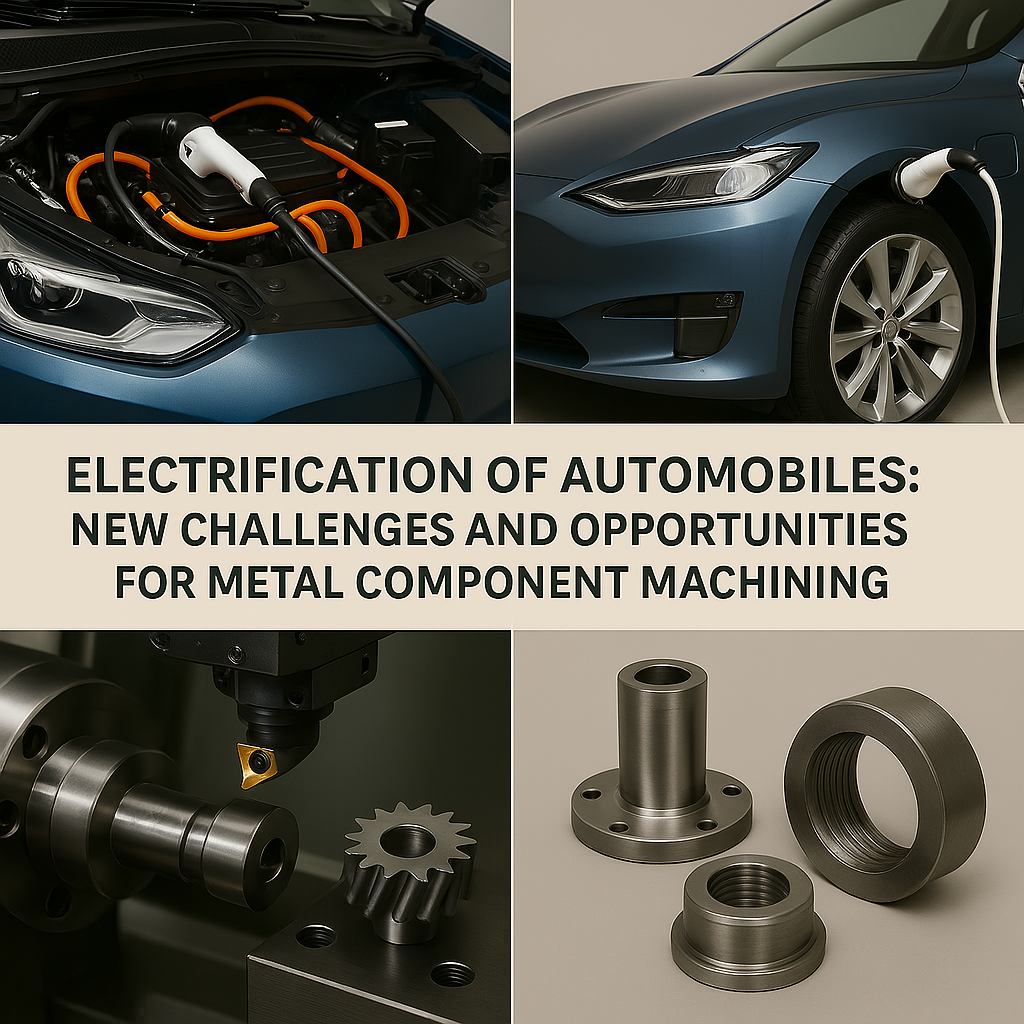The world of cars is changing fast. More and more people are buying electric vehicles (EVs) instead of traditional gas-powered cars.
This big shift is creating both new challenges and exciting opportunities for companies that make metal parts through precision machining.
How Electric Vehicles Are Different
Electric vehicles have some key differences compared to regular cars:
No gasoline engine — replaced by electric motors.
Big batteries — heavy and powerful.
Lighter designs — to save energy and extend driving range.
Fewer moving parts — simpler mechanical systems.
Because of these differences, the types of metal parts needed — and how they are made — are also changing.
New Challenges for Metal Parts Machining
1. New Materials
EV makers are using more lightweight metals like aluminum and magnesium to reduce weight.
These materials can be harder to machine because they may be softer, stickier, or prone to deformation.
2. Higher Precision
Some parts, like motor housings, battery casings, and cooling systems, need very tight tolerances to work efficiently and safely.
Precision machining must meet these strict requirements consistently.
3. Thermal Management Components
EVs need many parts to help manage heat from the battery and motor.
This creates demand for complex cooling plates and heat exchangers that require specialized machining techniques.
4. Shorter Product Lifecycles
EV technology is developing quickly, so designs change often.
Machining companies need to be flexible and adapt to new part designs faster than before.
New Opportunities for Metal Parts Machining
While there are challenges, there are also many new opportunities for machining companies:
1. New Types of Parts
EVs need battery trays, gearboxes for electric motors, charging components, and lightweight structural parts — all of which require precision machining.
2. Growing Market Demand
As more countries push for cleaner energy and ban gas cars, the demand for EVs is growing fast.
This means more business for companies that can supply high-quality machined parts.
3. Advanced Manufacturing Techniques
New technologies like 5-axis machining, laser machining, and additive manufacturing can help create complex EV parts more efficiently.
Companies that invest in these technologies can stand out from competitors.
4. Sustainability Focus
Many EV makers care about green manufacturing and recyclable materials.
Machining shops that adopt environmentally friendly practices may become preferred suppliers.
Summary
The rise of electric vehicles is changing the metal machining industry in big ways. While EVs require different parts and higher precision, they also open doors to new business and innovation.
For machining companies willing to adapt, invest, and learn new skills, the electric vehicle revolution is not a threat — it’s a huge opportunity for growth.
Please get more information, please visit our CNC Turning Parts or Products.
Contact us for your customized metal parts.
